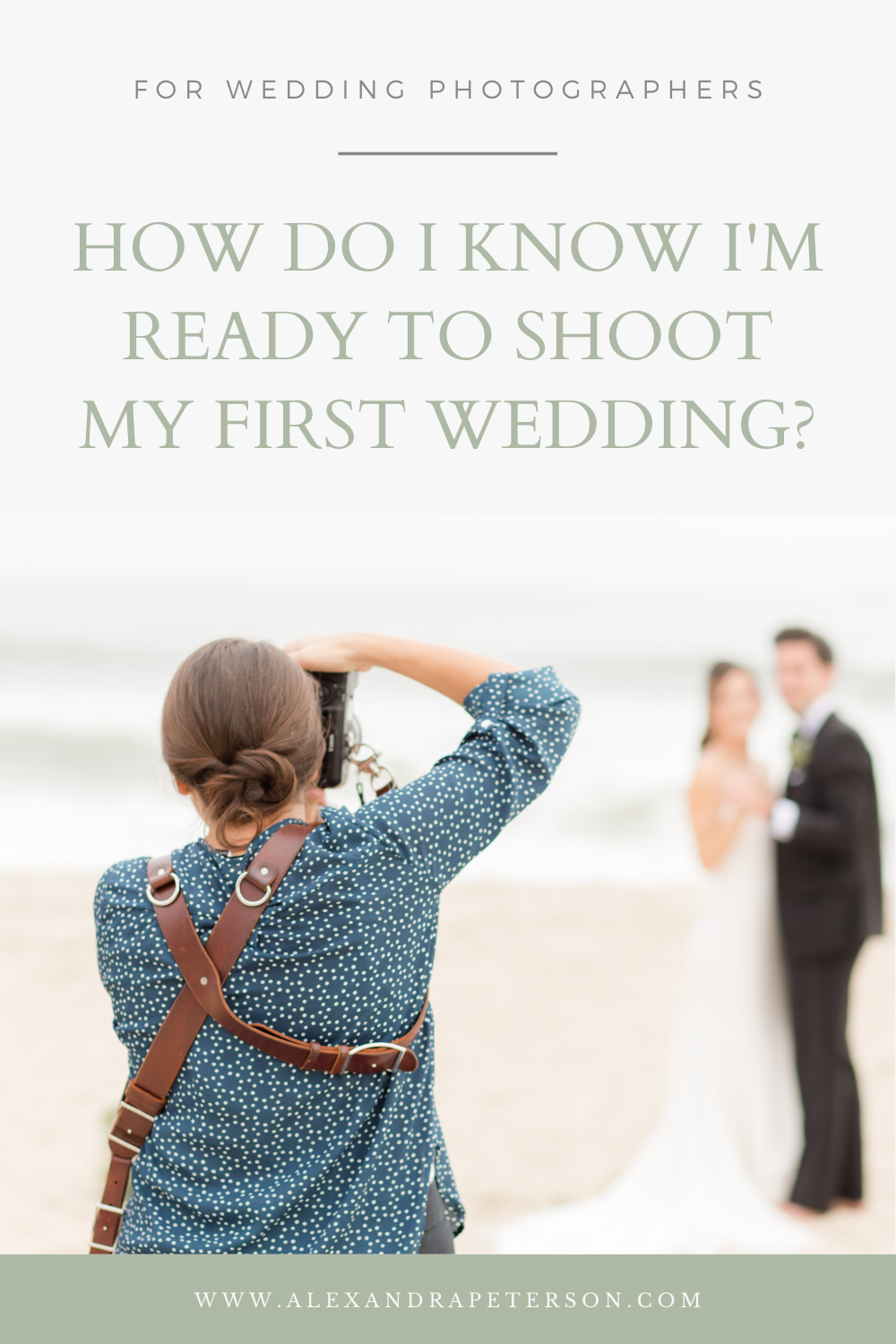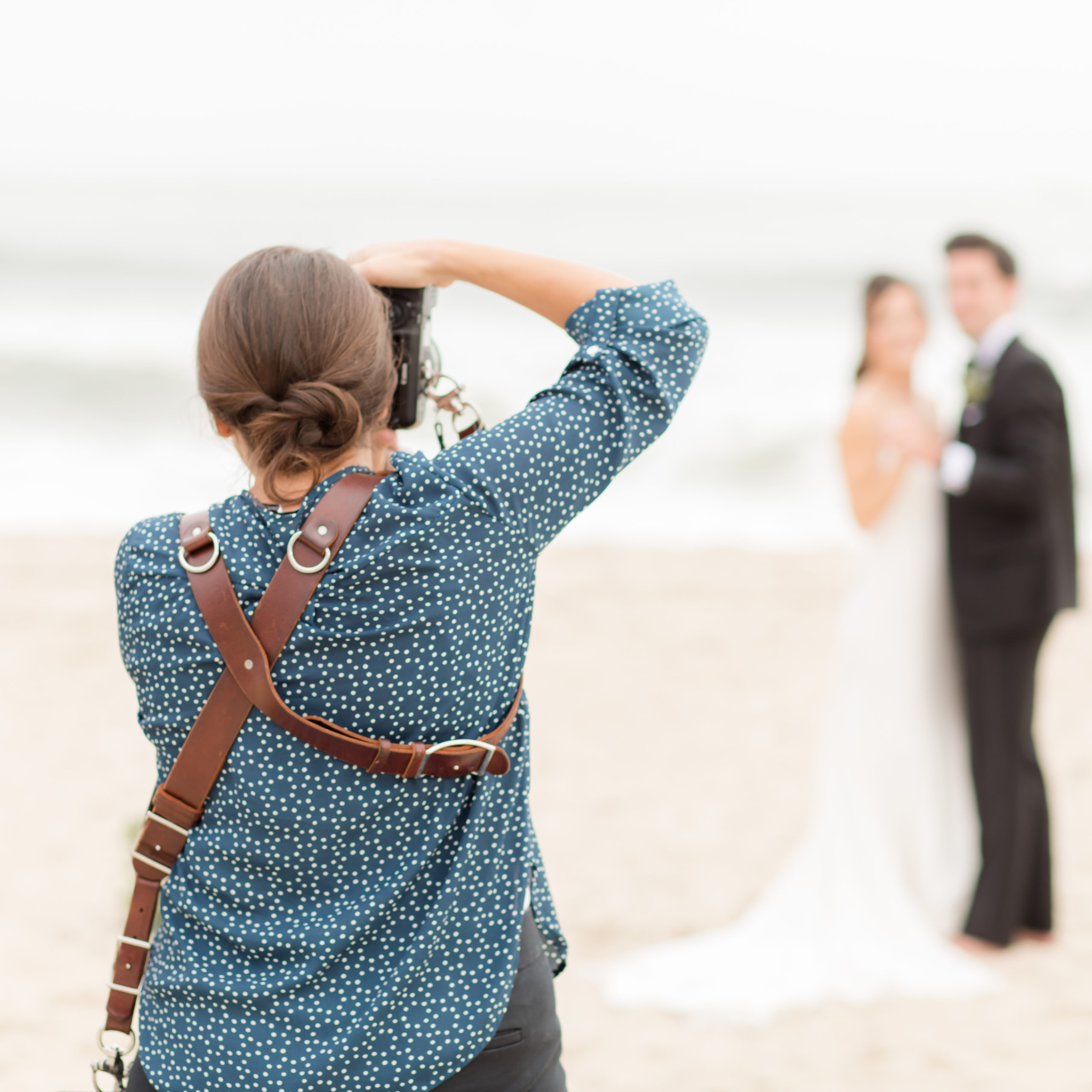FAQ: How do I know I’m ready to shoot my first wedding?
Shooting a wedding day is probably one of the hardest jobs out there for a photographer – You are under immense pressure to capture perfect images for a couple on such an important day in their lives. It can be quite daunting to have all that pressure to get the right details and shots, especially if you haven’t had much experience. Needless to say, it’s a decision that shouldn’t be taken lightly; you need to make sure that you have the gear, know-how, and experience to deliver a great client experience and end product. But rather than getting stressed out; you can start to take the right steps towards being ready to shoot a wedding on your own so that when the day finally comes, you will be prepared and your clients will be happy.
Create an action plan (tips for how to know you’re ready to shoot a wedding):
1. THE RIGHT GEAR
Having the right gear is definitely first on the list. Having a definitive style doesn’t have to be set in stone at this point, but it can be worthwhile starting to hone in on your own USP (unique selling point), and it’s great if you can merge your artistic practice with your wedding style. This style may dictate what type of equipment you’re going to need. Work within your financial boundary: don’t buy equipment you can’t afford. Instead, rent what you need to complete the jobs you’re hired for. When I first started shooting weddings, I rented a backup camera, lenses, and even flashes. Once you really get the ball rolling, you can start building up your gear and tools, like I did. It took me a couple of years to finally have all the gear I needed to properly shoot a wedding without having to rely on rentals. Make sure you have (or can rent) the right cameras, lenses, flashes, and accessories before you commit to shooting your first wedding. You ideally want to have two or more of everything: two camera bodies, multiple lenses, multiple flashes, and of course multiple memory cards, batteries, e.t.c. That way if anything were to fail or break on the day, you always have a back up plan.
2. INSURANCE
You really can’t skip out on the insurance. I don’t recommend anyone shoot a wedding without proper liability insurance. Talk to your insurance broker about the type of insurance you need. For me, some of the main issues to think about are theft or accidental damage, especially when you’re carrying expensive equipment around with you, which your job relies on. Professional indemnity is also a subject worth mentioning: if a client is unhappy with the service you’ve provided. Weddings are their big day and if you come across a disgruntled couple who isn’t happy with your work, you want to make sure that you are covered for all situations.
3. PRACTICE IN DIFFERENT LIGHTING SITUATIONS
Get experience shooting in different lighting situations. Again, practice shooting a ton before you think of doing wedding photography. Get used to shooting in low or limited lighting situations. Shoot in bright sun and harsh lighting conditions. Shoot in rooms with bad lighting. If you can grab a willing friend or model, it’s good to practice as much as possible so that you know how to troubleshoot situations that are less than ideal. Eventually, shooting in tricky situations will become second nature. The more confident you are at assessing a room and having your camera settings set-up correctly, the better your exposures, white balance, and composition will be.
4. TIMING & PLANNING
You need to start to understand and gain experience with knowing how a wedding day flows: what images need to be taken at what time so that no important shots are missed. Being prepared for shooting means knowing what types of shots are going to be needed. There’s more to it than just the kiss. The best way to do this is to work with an experienced photographer as a wedding day assistant. Not a second photographer who the photographer is relying on for images, but a 3rd person at a wedding day that is there to assist the photographers but also have the opportunity to shadow them and learn their process.
5. CREATE AN OUTLINE OF THE CLIENT JOURNEY
You really need to know how to deliver a stellar client experience from the moment potential clients inquire with you until the end of their experience with you. You don’t want to bring extra stress to your client’s day, so from beginning to end of their experience with you, you want to map out your workflow from the first meeting to delivering the final product. Don’t make up steps as you go; have a specific plan right from the start.
6. ASSIST AT A WEDDING. THEN ASSIST AT ANOTHER ONE. AND ANOTHER ONE.
Before shooting your first wedding you should actually work as a photographer’s assistant, which like I mentioned above, is different from being a second photographer. A second photographer needs to be a professional photographer who is qualified to be a lead shooter if something should happen to the lead, but an assistant is there to be an extra set of hands for the lead and second. This is the perfect opportunity to get a first hand view of how professionals run a wedding day and what is needed. What you can learn about shooting weddings by simply assisting a wedding photographer is invaluable.
7. MORE PRACTICING
Once you’ve worked as an assistant and have the gear and experience, then you will eventually be ready to work as a second photographer to gain more experience as an actual wedding photographer. You can also work for a large photography company that will oftentimes provide training. The weddings you may shoot for other studios are not necessarily ideal clients but these weddings will give you plenty of experience, which is what you need when you’re just starting out.
Eventually, these steps will lead to having the confidence to take on your first wedding and from a place of knowledge and ability to provide a next level experience. My advice is to start with smaller weddings – micro weddings or elopements – so that you can shoot events that are generally less stressful. Little by little, you’ll gain the experience, and thus the confidence you need to take on larger weddings.
Learn More
If you’d like to work with me to get you started on becoming a wedding photographer, check out my coaching sessions here.

welcome to the blog
Hello there! I'm Alex! I teach hobbyist photographers how to take better photos and professional photographers how to build a thriving business. Here I share tips and resources to help you grow. Thank you so much for visiting my blog!
categories
PHOTOGRAPHY
SOCIAL MEDIA
alex@alexandrapeterson.com
